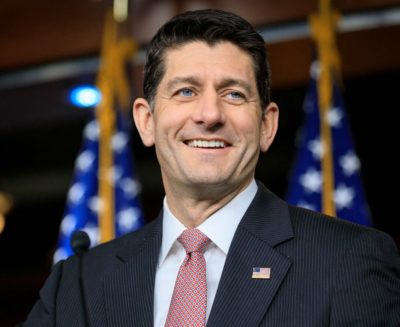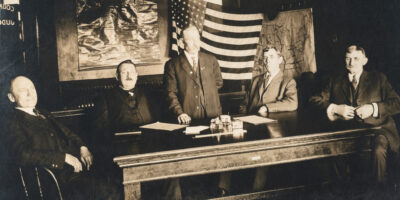Sound Money Gains a Champion
What are the chances that President Barack Obama and his Treasury secretary, Timothy Geithner, will ever have anything meaningful to say about monetary policy—beyond continuing to try to coax Federal Reserve chairman Ben Bernanke to print ever more dollars to buy up ever more U.S. government debt? About the same as the interest rate you are receiving on your savings: zero.
That’s why it matters so much for the future of the United States—indeed, the future of the global economy—that Paul Ryan is now on the Republican ticket. Because it’s not just the fiscal fiasco, caused by political cowardice and dithering, that has put our nation on a path to eventual bankruptcy. It’s also the loss of a monetary compass. The value of the dollar has been so compromised through loose Fed policies that it no longer functions as a trustworthy money unit. Instead of providing a reliable tool for measuring what something is worth, or for deciding whether to consume now or save for the future, the dollar has become yet another policy instrument of government.
One notable who’d be a severe critic of our monetary situation today is Thomas Jefferson. In his Notes on the Establishment of a Money Unit and of a Coinage for the United States, written in 1784, Jefferson focused on the need to protect the integrity of the American dollar. A dependable currency would not only unite the former colonies and facilitate commerce throughout the fledgling nation, it would also facilitate individual endeavor and economic opportunity. For the first time, for example, Jefferson argued, a nation’s monetary standard would be based on the decimal system so that business calculations would be simple, honest, and straightforward.
For Jefferson, the notion that the value of the U.S. dollar might one day be subordinated to a perceived need in the nation’s capital to accommodate budgetary failures would be a betrayal of the American promise. The money unit of the United States should represent an “unchangeable” standard of value, Jefferson firmly believed, that would remain “accessible to all persons, in all times and places.” A sound dollar underscored America’s commitment to free people and free -markets, to a self-governing nation dedicated to economic freedom and equal rights under the law.
Discussing monetary issues, Paul Ryan sounds Jeffersonian:
Money whose future value is unpredictable cannot serve its most important purpose, to provide a common rule to equate goods, services, and labor. When social transactions are undermined, people lose trust in one another, and the vacuum must be filled with the power of government. Our Founders experienced this firsthand, so they laid their foundations to provide for limited government with a maximum of entrepreneurial freedom and sound money.
You can be sure that detractors of the presumptive Republican nominee for vice president will brand this sort of thinking as “extreme” and “radical”—a threat to monetary policy as we know it. Certainly, Ryan’s views represent a different approach from what is currently practiced in Washington, where the dollar’s value is merely a consequence of interest-rate decisions and banking regulatory tweaks made every six weeks or so, entirely at the discretion of unelected officials appointed to the board of governors of the Federal Reserve.
But when Ryan emphasizes the need for sound money in the context of civil society and free markets under limited government, he is not only invoking the ideals of Jefferson. He is also building on the insights of Friedrich Hayek, the great free-market economist whose Constitution of Liberty (1960) carries this ominous warning: “All those who wish to stop the drift toward increasing government control should concentrate their effort on monetary policy.”










